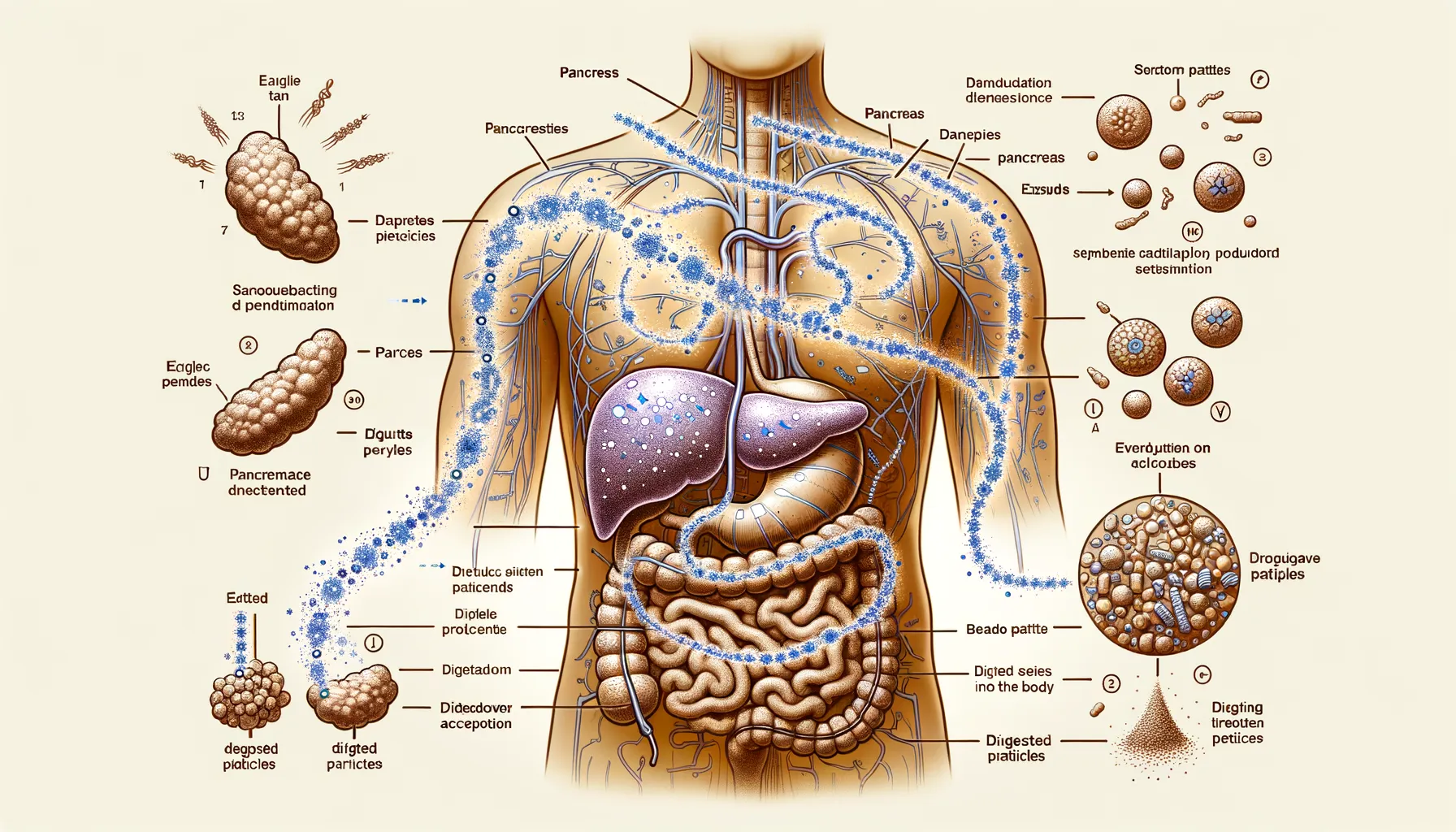Pancreatic Enzymes: Understanding Their Role in Digestion
Unveiling the Mysteries of Pancreatic Enzymes
The pancreas is a vital organ in the human body, playing a crucial role in the digestive system. It secretes a cocktail of enzymes into the small intestine, where they break down the food we eat into absorbable molecules. Understanding the function of pancreatic enzymes is essential for appreciating their significance in maintaining our health and well-being. These enzymes are not only pivotal for digestion but also for overall metabolic processes.
The Core Functions of Pancreatic Juices
Pancreatic juices are a blend of several enzymes, each with a specific role in digestion. They act on different types of food components, such as carbohydrates, fats, and proteins, facilitating their breakdown into simpler forms that can be absorbed by the body. This enzymatic action ensures that the nutrients in the food we consume are available for our cells and tissues, supporting growth, repair, and energy production.

Breaking Down the Role of Amylase
- Amylase is responsible for the breakdown of carbohydrates into simple sugars. It starts its action in the mouth through saliva and continues in the small intestine with the secretion from the pancreas. This enzyme is critical for converting complex carbohydrates into glucose, a primary energy source for the body.
Lipase: The Fat-Dissolving Enigma
Lipase plays a crucial role in the digestion of fats. It breaks down triglycerides into fatty acids and glycerol, making them easier to absorb. Without adequate lipase activity, fats can pass through the intestine undigested, leading to malabsorption issues and nutritional deficiencies. Understanding and optimizing lipase function is key for maintaining a healthy lipid balance in the body.
Protease’s Pivotal Role in Protein Digestion
Protease enzymes are vital for breaking down proteins into amino acids and smaller peptides. These components are essential for various bodily functions, including tissue repair, muscle growth, and hormone production. Protease deficiency can lead to incomplete protein digestion, affecting overall health and well-being.
The Implications of Enzyme Deficiencies
Enzyme deficiencies can have profound implications on digestion and nutrient absorption. Symptoms of such deficiencies might include bloating, gas, diarrhea, and nutritional deficiencies. Chronic conditions, such as cystic fibrosis or chronic pancreatitis, can lead to a significant reduction in the production of pancreatic enzymes, directly impacting the body’s ability to process and absorb nutrients.
How Pancreatic Disorders Affect Digestion
Pancreatic disorders can severely impair the organ’s ability to produce and release enzymes, leading to a cascade of digestive issues. Conditions like acute pancreatitis, pancreatic cancer, and cystic fibrosis can all disrupt the delicate balance of enzyme production, necessitating medical intervention to manage symptoms and ensure proper nutrient absorption.
Navigating Treatment Options for Enzyme Issues
For individuals facing enzyme deficiencies, there are several treatment options available. One of the most common approaches is enzyme replacement therapy, which involves taking digestive supplements to aid in the digestion and absorption of nutrients. Lifestyle changes, such as modifying diet and increasing meal frequency, can also help manage symptoms. In more severe cases, medical or surgical interventions may be necessary to address the underlying causes of enzyme deficiencies.
In conclusion, pancreatic enzymes play a critical role in digestion, breaking down fats, proteins, and carbohydrates into their absorbable forms. Understanding their function is crucial for recognizing the symptoms of enzyme deficiencies and navigating the available treatment options. With proper management and care, individuals can mitigate the effects of these deficiencies and maintain a healthy digestive system.